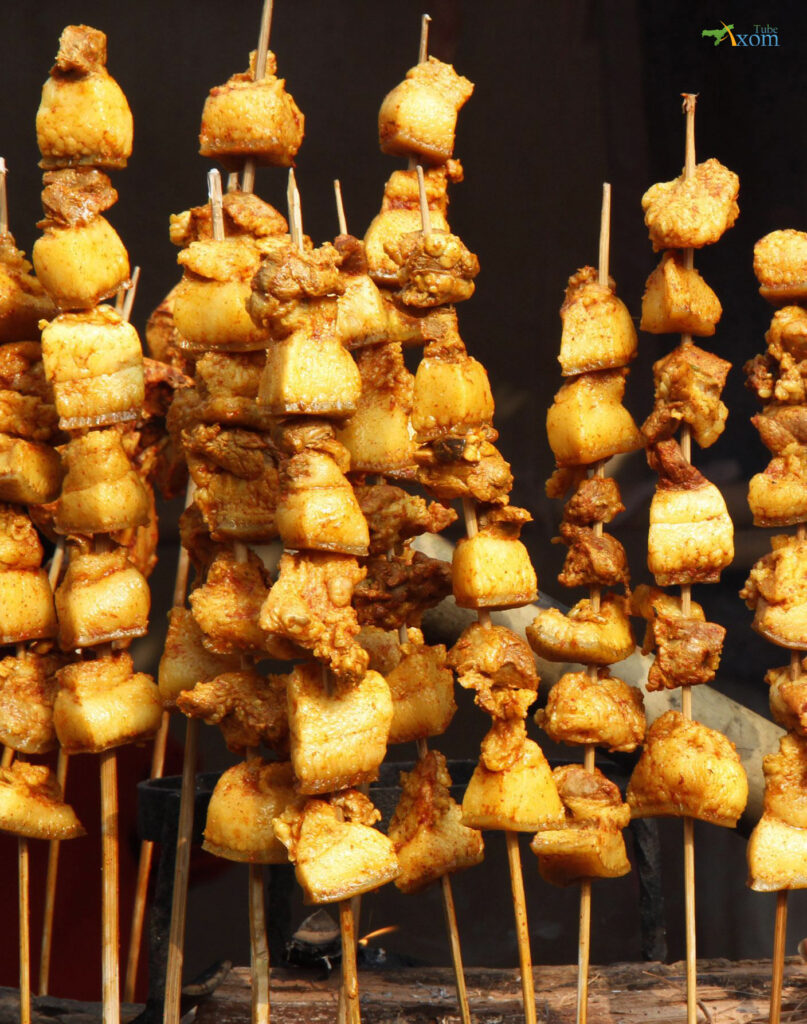In the diverse cultural tapestry of Assam, pork occupies a unique place. It is more than just a culinary delight; it’s a reflection of the state’s rich heritage, traditions, and social norms. However, the position of pork in Assamese culture is marked by a duality, balancing visibility and ‘purity’ in a society deeply connected to its roots.
Culinary Significance
Pork is a vital part of Assamese cuisine. It graces the tables of both everyday meals and special occasions. From traditional dishes like “Masor Tenga” (sour fish curry) to festive feasts, pork is a star ingredient, celebrated for its rich flavors.
Cultural Significance
Beyond the palate, pork carries cultural significance. It is linked to Assam’s indigenous communities, particularly the tribal groups, where pork plays an integral role in rituals and customs. The practice of consuming pork in these communities has been passed down through generations.
Socio-religious Considerations
However, Assam’s social landscape is evolving, and the role of pork is being scrutinized. As Assamese society encounters modernity and influences from outside the region, socio-religious considerations often come into play. Some argue that consuming pork contradicts the concept of ‘purity’ in certain Hindu practices, leading to debates and discussions.
Visibility and Adaptation
While debates persist, the visibility of pork remains robust in Assamese culture. Street food stalls and local eateries continue to offer delectable pork dishes, ensuring its presence in everyday life. Pork’s adaptability in various recipes reflects its resilience.
Changing Perspectives
The changing perspectives on pork in Assamese culture are not one-dimensional. Some individuals and communities have adapted their culinary choices to align with evolving norms, while others staunchly uphold traditional practices.
Cultural Bridges
Pork also serves as a cultural bridge, connecting different communities and their diverse traditions. It provides an opportunity for cultural exchange and fosters mutual understanding among Assam’s people.
Cultural Preservation
Efforts to preserve the cultural integrity of Assamese cuisine, including the rightful place of pork, are ongoing. Organizations and enthusiasts are actively promoting the state’s traditional dishes, seeking a balance between heritage and modernity.
Respecting Diversity
Ultimately, the debate over pork in Assamese culture is a reflection of the state’s diversity and the need to respect varying traditions. The coexistence of different dietary practices, whether vegetarian, non-vegetarian, or pork-based, is a testament to Assam’s pluralistic ethos.
Pork in Assamese culture is not just about food; it’s a multifaceted aspect of identity, tradition, and change. The duality of its role, between visibility and ‘purity,’ encapsulates the complexity of Assam’s evolving society. As Assam continues to embrace its rich heritage while adapting to a changing world, the place of pork in its culture will continue to be a topic of discussion and reflection. In this journey, the heartwarming aroma of pork curry, with its rich history and culinary tradition, remains an integral part of Assamese life.


